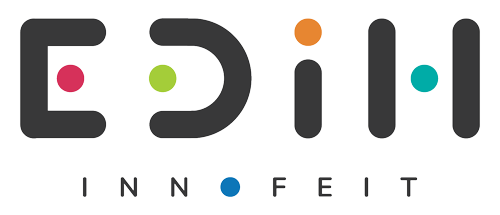This course focuses on optimizing energy use through efficient technologies and strategies. Participants will explore HVAC systems, LED lighting, smart meters, automation, and digital tools like energy management systems and AI-driven optimization. Key skills include energy audits, demand-side management, and implementing sustainable energy solutions.
Course Overview Table
| Chapter | Details |
| Partner | Centre for Technology Transfer and Innovations |
| Title | Smart Energy Conservation: Strategies for Efficiency and Sustainability |
| Service | Course |
| Target Group | SMEs, Industry, Public Administration, Energy Managers, Facility Operators, Engineers, Sustainability Professionals |
| Format | Workshop |
| Focused on Key Technologies | Energy Management Systems |
| Status | Ready to offer |
| Stakeholders from SME/PA Side | Companies seeking energy cost reduction, policymakers working on energy efficiency regulations, industries optimizing operational efficiency |
| Requirements for Participation | Basic knowledge of energy systems or sustainability concepts; no advanced technical background required |
| Estimated Duration | 12 hours (3 sessions of 4 hours each) |
Description of the Course
Energy conservation is vital for reducing costs, improving efficiency, and minimizing environmental impact. As global energy demands rise, businesses and individuals must adopt smarter strategies to optimize energy use while maintaining sustainability. This course covers key conservation principles, practical techniques, and innovative technologies to enhance energy efficiency across buildings, transportation, and industrial processes.
Participants will explore methods like HVAC systems, LED lighting, smart meters, and automation, alongside digital tools such as energy management systems and data-driven optimization. Case studies from various sectors will showcase the impact of effective conservation strategies. The course also covers best practices for demand-side energy management, renewable energy integration, and techniques like load shifting and peak demand reduction.
This course equips professionals with the tools to implement energy-saving strategies, combining technical knowledge, digital innovation, and real-world case studies.
Preliminary Agenda
Day 1: Introduction to Energy Conservation and Efficient Technologies
- Overview of energy conservation principles
- Energy-saving methods: HVAC, LED lighting, smart meters
- Role of automation and digital tools in energy efficiency
Day 2: Digital Tools and Strategies for Energy Optimization
- Energy management systems and real-time monitoring
- Data-driven optimization techniques
- Case studies on energy conservation in different sectors
Day 3: Advanced Energy Conservation Techniques and Implementation
- Demand-side energy management and renewable energy integration
- Behavioral changes and process optimization strategies
- Hands-on exercises for creating tailored energy plans
- Final Q&A and closing remarks
By completing this course, participants will gain actionable insights and practical skills to implement energy conservation measures. The combination of hands-on learning, technical knowledge, and digital innovations prepares attendees to develop and execute sustainable energy strategies.
Additional Course Information
| Category | Details |
| Value of Service | Participants will acquire knowledge and skills, including: |
| Skill 1: Understanding fundamental energy conservation principles and their economic/environmental impact
Skill 2: Identifying and implementing energy-efficient technologies in industrial, commercial, and residential settings Skill 3: Analyzing energy consumption data using key performance metrics and digital tools Skill 4: Applying demand-side energy management strategies, including load shifting and peak demand reduction Skill 5: Integrating smart energy management systems for real-time monitoring and optimization |
|
| Learning Methods Used | Lectures, hands-on exercises, group discussions, case study analysis |
| References/Resources | EU Energy Efficiency Directive, case studies from energy-efficient industries, supplementary materials |
| Overview Slides | Supporting slides and documentation will be provided; available via the course platform or upon request |
